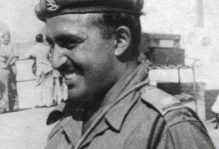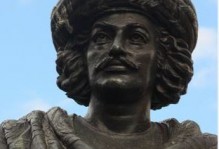Thank God there are absent minded Professors
An absent minded professor is nerdy, unkempt and rather messy and a butt of jokes in comic strips and movies. But thankfully for us they exist, for some of the most fundamental discoveries of mankind have been made by careless absent minded scientists.
Alexander Fleming forgot to clean up his scientific equipment before proceeding on┬Āvacation . When he came back, he found strange fungus moulds in some of the Petri dishes,┬Āand surprisingly no bacteria seemed to thrive near these cultures. Fleming had discovered the Penicillin, which has till date saved millions of lives.
The heart pacemaker got discovered when Wilson Greatbach messed up a circuit he was making for┬Ārecording heart beats. He by mistake pulled out a 1 mega ohm resistor instead of a 10,000 ohm one. To his surprise, the circuit pulsed for 1.8 milliseconds and then stopped for one second and then it repeated- a prefect heartbeat.
In 1856 the 18 year old chemist William Perkin was obsessed with discovering artificial quinine for malaria cure.He ended up with a thick slimy chemical concoction. The concoction had a beautiful mauve colour. Perkin had accidentally made the first synthetic dye.
Becquerel back in 1896 was experimenting whether natural fluorescence minerals produced X-rays when left under sunlight. Thankfully for us, the sky was overcast and Becquerel wrapped his equipment put it in his laboratory drawer and waited for a sunny day. After a week when he came back to resume his experiment, he found that the uranium rock he had left in the drawer had imprinted itself on a photographic plate also lying in the drawer without being exposed to sunlight first. Becquerel was witnessing the phenomenon of radioactivity which was to win him the Nobel Prize.
In 1945 Percy Lebaron Spencer, an American engineer, was working on the properties of microwave. He felt something sticky in his trouser pocket and discovered that the chocolate bar in his pocket┬Āhad melted on being exposed to microwave. This discovery lead to the microwave oven.
Charles Goodyear was working on how to make rubber resistant to heat and cold so as not to crack┬Āor melt during extreme weather conditions. All his experiments failed so did his finances. Once day accidentally Goodyear spilled a mixture of rubber, sulphur and lead on a hot stove, and the heat did not ruin the rubber, ┬ĀGoodyear┬Āhad discovered the vulcanisation process. Vulcanised rubber is used in everything from tyres to┬Āshoes.
Roy Plunkett, a chemist with DuPont was busy working on making chloroflurocarbons. He theorised that if a compound called TFC reacts with hydrochloric acid, he should have what he wanted. So TFC gas was brought, cooled and put in pressured sealed containers. When Henri opened the container, the gas had disappeared, and instead was left white flakes. This was Teflon the coating on non stick cookware.
Atlanta pharmacist John Pemberton made a concoction what he thought would be a good cure for headache. The concoction sold┬Āfor eight years from┬Āchemist shops, before being marketed as a cold drink in bottles branded as Coca Cola.
In 1879 chemist Constanin Fahlberg forgot to wash his hands and sat down to have his lunch which tasted strangely sweet. He called to ask his wife, and sh said there had been no change in recipe. Fahlberg realised the taste was from the chemical in his hands. He then started tasting all the chemicals he had worked with that day and discovered what we know today as artificial sweeteners.
Serendipity is the word in English language which connotes a happy accident, and our absent minded┬Āprofessors surely know about it.





Very interesting accidents which helped mankind to progress. Likewise the Newtons laws Archimedies principle were accidental discoveries